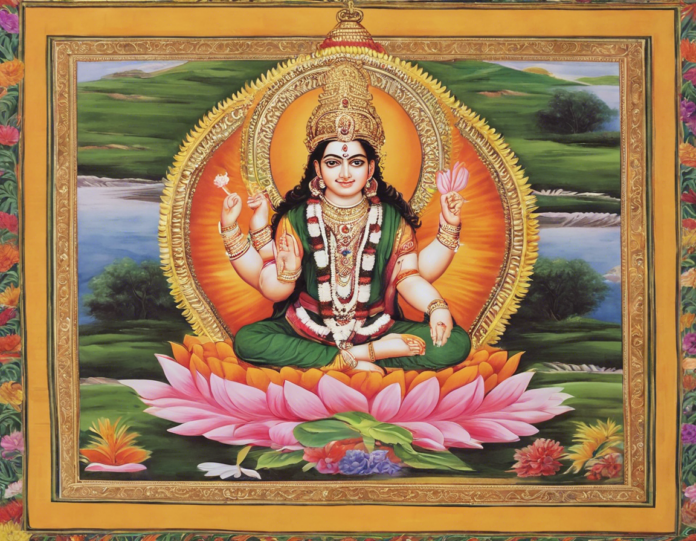The Shiv Puran is a significant religious text in Hinduism that delves into the stories, teachings, and mythology surrounding Lord Shiva, one of the principal deities in the Hindu pantheon. Composed of twenty-four thousand verses, the Shiv Puran is a part of the eighteen Mahapuranas – a genre of ancient Indian texts that expound upon various aspects of Hindu mythology, philosophy, and tradition. In this article, we will explore the significance of the Shiv Puran, its structure, key themes, and the importance it holds for followers of Hinduism.
Structure of Shiv Puran
The Shiv Puran is traditionally divided into two parts: the Jyotirlinga Khanda and the Uma Samhita.
Jyotirlinga Khanda
This section primarily focuses on the glory and significance of the twelve Jyotirlingas, which are sacred shrines dedicated to Lord Shiva. These Jyotirlingas are believed to represent a form of Lord Shiva and are considered highly auspicious pilgrimage sites for devout Hindus.
Uma Samhita
The Uma Samhita narrates various legends of Lord Shiva, his consort Goddess Parvati (Uma), and their interactions with other deities, sages, and demons. It also includes details about rituals, festivals, and religious observances related to Lord Shiva.
Key Themes in Shiv Puran
Creation and Cosmology
The Shiv Puran outlines the cosmology of the universe, detailing the creation, sustenance, and eventual dissolution of the cosmos. It elucidates the concept of Srishti (creation), Sthiti (preservation), and Laya (destruction) in the cyclical nature of time.
Legends of Lord Shiva
Several mythological stories and legends about Lord Shiva find mention in the Shiv Puran. These tales depict his various forms, roles as a destroyer of evil, and his benevolence towards his devotees.
Devotion and Worship
The Shiv Puran emphasizes the significance of bhakti (devotion) towards Lord Shiva as a means to attain spiritual liberation (moksha). It elucidates various forms of worship, rituals, and mantras that devotees can follow to seek the blessings of Lord Shiva.
Moral and Ethical Values
Through parables and teachings, the Shiv Puran imparts moral and ethical values to its readers. It underscores the importance of righteousness, compassion, and dharma (righteous duty) in leading a virtuous life.
Importance of Shiv Puran for Hindu Followers
The Shiv Puran holds immense importance for followers of Hinduism due to the following reasons:
Spiritual Guidance
The text serves as a spiritual guide for devotees who seek to deepen their understanding of Lord Shiva and his teachings. It offers insights into the philosophy of Shaivism and provides practical guidance on leading a spiritually fulfilling life.
Ritual Practices
Devotional practices and rituals outlined in the Shiv Puran form an integral part of Hindu religious observances. From daily prayers to elaborate pujas, these rituals help devotees cultivate a deeper connection with Lord Shiva.
Cultural Significance
The Shiv Puran plays a crucial role in preserving and perpetuating cultural traditions associated with Lord Shiva. Festivals such as Mahashivaratri and Shravan Maha Maas draw inspiration from the stories and mythology contained in this sacred text.
Philosophical Insights
By delving into the complex nature of reality, consciousness, and divinity, the Shiv Puran offers philosophical insights that stimulate intellectual inquiry and contemplation among seekers of knowledge.
Frequently Asked Questions (FAQs)
1. What is the significance of the twelve Jyotirlingas mentioned in the Shiv Puran?
The twelve Jyotirlingas symbolize the omnipresence of Lord Shiva and hold immense spiritual power. Pilgrimage to these sacred shrines is believed to bestow devotees with blessings and fulfill their wishes.
2. How does the Shiv Puran contribute to shaping Hindu mythology and Lore?
The Shiv Puran enriches Hindu mythology by narrating intriguing tales of deities, sages, and demons, thereby expanding the cosmology of the Hindu universe.
3. Can non-Hindus read and appreciate the Shiv Puran?
Yes, the Shiv Puran can be read and appreciated by individuals regardless of their religious affiliation. The text offers insights into universal themes such as love, devotion, and the cycle of life and death.
4. What teachings on ethics and morality does the Shiv Puran impart to its readers?
The Shiv Puran emphasizes values such as truth, compassion, righteousness, and duty (dharma), urging readers to embrace these principles in their lives.
5. How can one incorporate the teachings of the Shiv Puran into their daily life?
Devotees can practice daily prayers, rituals such as chanting of mantras, and observing fasts on auspicious days to internalize the teachings of the Shiv Puran. Additionally, cultivating a spiritual relationship with Lord Shiva through meditation and reflection can deepen one’s understanding of the text.
In conclusion, the Shiv Puran stands as a revered scripture in Hinduism, offering a profound insight into the mythology, philosophy, and devotional practices associated with Lord Shiva. By studying this sacred text, followers of Hinduism can deepen their spiritual awareness and nurture a profound connection with the divine.
